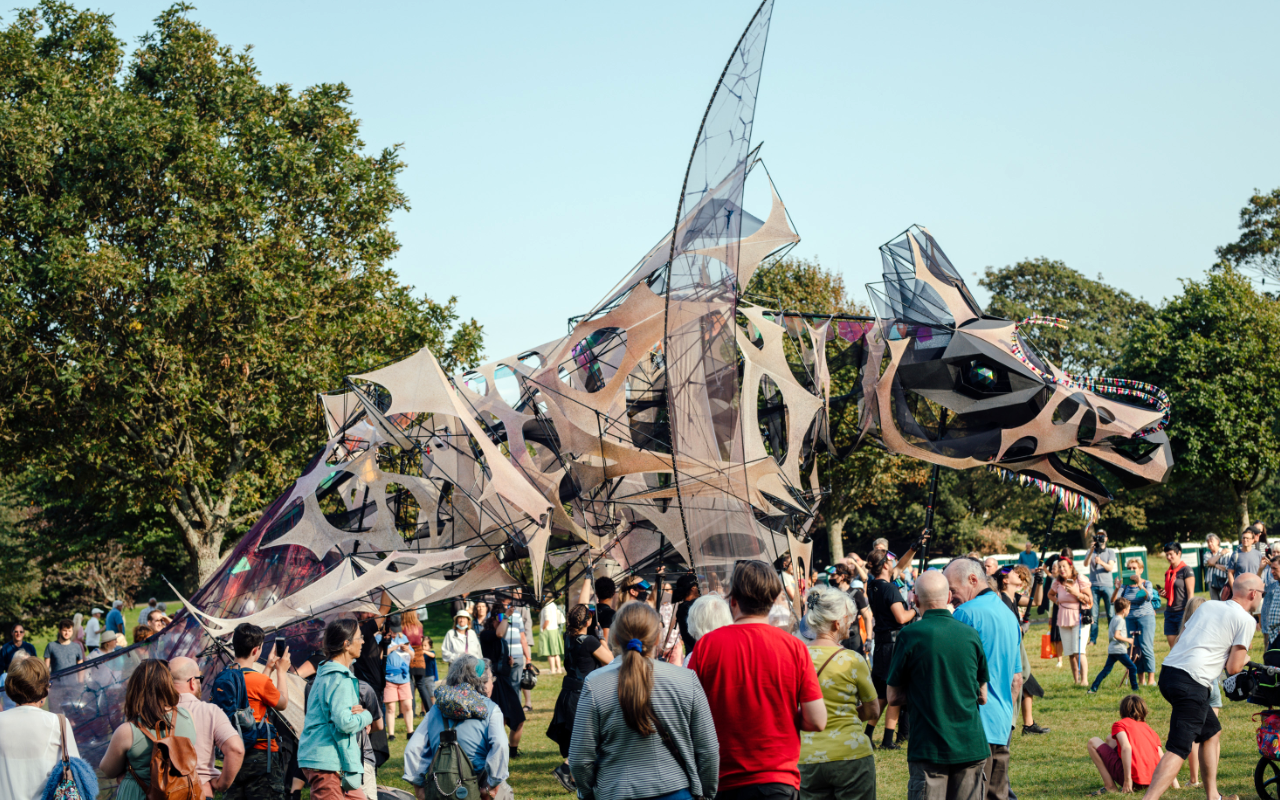
The Hatchling
Photo: Dom Moore
Collective creativity can address global challenges
When the best of technology meets the spark of creativity, incredible things can happen regardless of what century – or millennium – you happen to be in, says Hayaatun Sillem.
Think of an engineer and what image springs to mind? There’s a good chance that it will be a person, usually a man, in a hard hat. While PPE (personal protective equipment) has an important role, this reductive and outdated view doesn’t do justice to the reality of modern engineering.
Engineering, at its heart, is about creative problem-solving: applying scientific and technical knowledge to tackle real world problems and improve people’s lives. It’s inherently human-centric and utterly reliant on collaboration. Engineers can only be effective if they work in partnership with other experts and end users to design, develop and deliver solutions.
The importance of creativity in our lives – whether to enrich our everyday experiences or tackle grand, global challenges – is unquestionable. And creativity is agnostic: it can come from and manifest anywhere, including art, mathematics, culture, medicine or indeed engineering. Some of the most exciting innovation emerges when disciplines and communities combine their strengths and insights in new and courageous ways.
The power of this openness to trying things out, experimenting and fusing ideas, tools and technologies, can be seen across cultures and throughout history.
Radically creative thinking and audacious action
Consider the caves of Lascaux: a beautiful network of ancient stone paintings in France dating back 17,000 years. These couldn’t have been created without the interplay of early engineering (to make the paints and successfully apply them through hollowed animal bones) and the creative vision and ambition to produce work that reflected an image conceived in the imagination of the painter.
I’ve worked across engineering and technology throughout my career and am regularly surprised and inspired by the creativity that drives progress in research and innovation, but the global pandemic has turbo-charged the pace and scale of this. We’ve demonstrated that when the imperative is strong enough, we can achieve things most of us never dreamed possible: from the astonishing progress on vaccines to the massive global adoption of digital communication tools that enabled our connected life to continue through lockdowns.
These extraordinary achievements speak to the potency of deep collaboration, radical creativity and heroic human endeavours coming together to tackle a compelling shared goal.
Exploring shared challenges and shared goals
We have no shortage of compelling shared goals ahead of us, from Covid recovery to the global climate crisis. Addressing these is going to require both radically creative thinking and audacious action, which in turn rely on us marshalling our best and broadest talent base. Our current tendency to over-emphasise disciplinary silos and even arbitrarily divide people into ‘creative’ and ‘scientific’ or ‘technical’ identities will only impede our ability to achieve this.
This is one of the reasons I am so excited to be involved in a new programme of 10 major creative commissions resulting from novel and unexpected collaborations among scientists, technologists, engineers, mathematicians and artists, which will take place at dozens of locations across England, Northern Ireland, Scotland and Wales during next year. These commissions use creativity to explore ideas and shared challenges: from sustainability and climate, to young people’s futures and community identity. We will be announcing the programme and name in October.
I am also proud that these extraordinary commissions have followed a unique – and funded – R&D process, involving more than 500 creative minds and practitioners, including over 100 freelancers. The R&D process took place in the darkest days of the pandemic, with the ambition and originality of the 30 project ideas developed by these brilliantly eclectic and diverse teams providing a startling counterpoint of inspiration and optimism for all involved.
A global conversation
The 10 commissions selected through this process will contribute to a wider, global conversation: a dialogue about the importance of creativity, creative skills and cross-disciplinary working. Together with partners such as the British Council and the BBC, they will provide the chance for people to come together to be a part of this conversation, while also experiencing the wonder and excitement generated when engineering, technology, maths, science, arts and culture collide.
Collectively, these sectors make a vital contribution to the UK economy. Pre-pandemic, this was estimated at £116bn a year for creative industries and £450bn for engineering. It’s clear that we need these industries to thrive for both economic and societal reasons.
As we continue to emerge from a protracted period of isolation, disruption and practical and emotional upheaval, this celebration of creativity isn’t just providing work and jobs for hundreds of talented creatives. Through its live and digital experiences as well as learning and participation programme, it will offer a very welcome chance to come together, be inspired and reflect on our shared futures.
Dr Hayaatun Sillem CBE is Chief Executive Officer at Royal Academy of Engineering and Board Director at UNBOXED: Creativity in the UK.
This article, sponsored and contributed by UNBOXED, is part of a series of articles to showcase the value of creativity and what creativity means.
Join the Discussion
You must be logged in to post a comment.